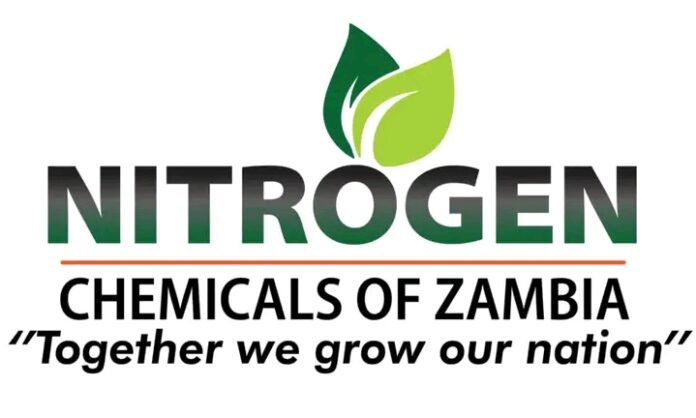Re-invest in NCZ, Establish Phosphate Mines
By Amb. Emmanuel Mwamba
I’m surprised that people are surprised that United Capital Fertilizer does not manufacture fertilisers.
The revelations made by Economic Freedom Fighters(EFF) leader that United Capital Fertilizers imports fertilizer from Morrocco while its being paroded as a success story by Government, is true.
United Capital Fertilizer merely blends the imported concentrates to make fertiliser.
They don’t manufacture it here.
They merely blend imported ingredients or concentrates that come in granules form.
United Capital Fertilizer Zambia Company Limited, located in Chilanga District, is a vertically integrated blended fertilizer enterprise with the capacity to supply urea, DAP, NPK and other customised blended fertilizers.
A visit to the plant will immediately reveal hundreds of trucks bringing in imported potash and phosphate for the company to blend it into fertiliser.
The potash and phosphates come in granular form, and a simple process combines them into finished fertilisers.
It’s for the reasons we have advised President Hakainde Hichilema to look to revamping Nitrogen Chemicals of Zambia (NCZ).
When setting up NCZ, the technical proposals were that the plant should be based in Isoka or Eastern province, where the country has huge deposits of phosphate, the primary ingredient in the manufacture of fertilisers and acids.
But ZIMCO had chosen to create the industrial town of Kafue where the holding company chose to locate kafue Textiles and NCZ plants. In the interim, it became logistically easier to import by rail, the phosphate raw material, than to establish a mine in Mafinga for the plant.
Later, after extensive exploration, four igneous phosphate reserves were confirmed at Chilembwe and Kaluwe, in Eastern Province, Nkombwa Hill, in Northern Province and in Mumbwa, Central Province.
Another ingredient for the plant, serpentine consisting of hydrated magnesium silicate, was identified in many places, including Luapula.
NCZ was producing fertilisers, sulfuric acids for the smelting plants of the mines, explosives, nitric acid, nitrogen, and amonia.
If we have to revive NCZ or parrot United Fertilisers as a success, the supply of raw materials need to come from Zambia as phosphate reserves are found everywhere, including the newly discovered belt from Nyimba to Chadiza.
The multi-million dollar preferential procurement that favours United Capital Fertilisers actually favours Moroccan and Western Sahara phosphate mines and creates employment there than in Zambia.
Nitrogen Chemicals of Zambia Limited is a state-owned enterprise with the Government of the Republic of Zambia as its shareholder through the Industrial Development Corporation (IDC).
It was established in September 1967 and was commissioned on May 27, 1970 by the first Republican President Dr. K. D. Kaunda. The main aim of establishing the company was to manufacture Ammonium Nitrate for further processing into explosives for the mining industry and for fertilizer use, the plant was later expanded to increase fertilizer production in support of Government efforts to promote agriculture.

Have you already forgotten that you presided over this situation for more than right years without doing what you are saying
Please stop politicizing and commenting on thing you bare understand. NCZ received a chunk of the Eurobond money, hundreds of millions of dollars. How was this money used? Where are the assets to show for debt incurred. It is tragic that new Chinese fertilizer companies are exporting there products to Zimbabwe and Tanzania whilst NCZ is still asking for cash handouts. NCZ is now asking for 6m for the same blending plant used by the Chinese company. The phosphate deposits in Zambia are igneous and very low grade. They require elaborate mining and beneficiation processes to make amenable to fertilizer manufacturing. Zimco abandoned the idea, even private companies in the post 1991 period looked at the nearby kaluwe deposits and found them uneconomic. The world has changed so don’t just copy and paste KK’s UNIP projects. It is actually cheaper to import phosphates from Asia or north Africa and blend into fertilizer in Zambia. Even cheaper to import finished products assuming the procurement is devoid of corruption. Has someone followed up on the mwinilunga pineapple canning factory? Do pineapples grow all year round? What is happening there? There are a lot of tomatoes grown in Lusaka and central provinces all year round. Would have made sense to make a plant in Chibombo, Kabwe or Kapiri to utilize the tomatoes that go to waste. Who is going to transport tomatoes to all the way to mwinilunga for processing and then transport them back to Lusaka/copperbelt for selling. Was a feasibility study done? Do basic research before you post misleading articles.
Food for thought there
Imwe naimwe you were there and you messed up. why do you want to appear brainy when you are just a pea brain?